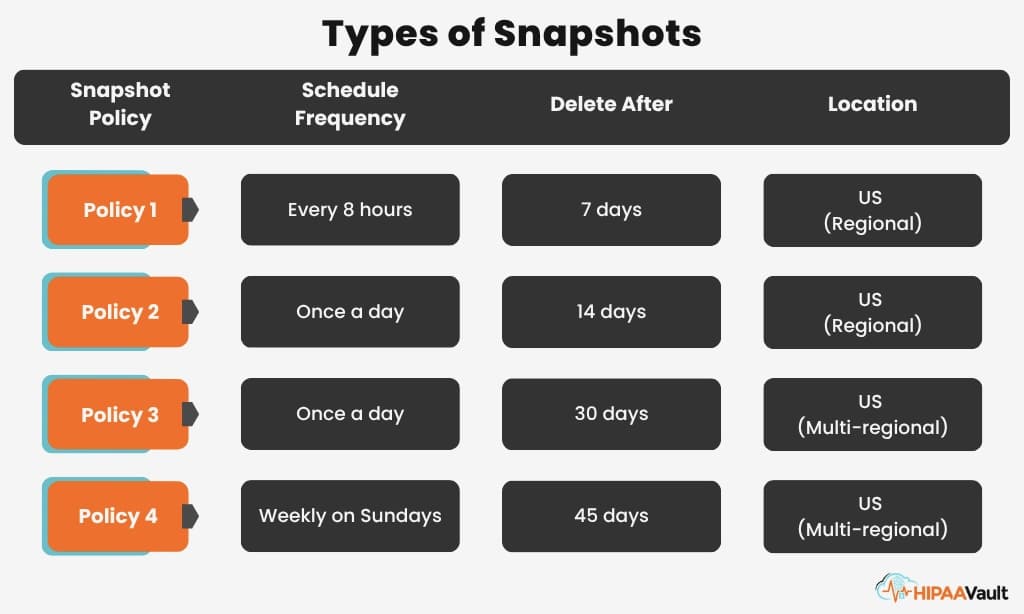Blockchain is no longer emerging tech — it’s actively transforming how we manage EHRs, insurance claims, clinical trials, and drug traceability.
But most projects fail before they scale — not because of the tech, but because they violate HIPAA.
Projects that ignore HIPAA get shut down faster than any cyberattack ever could.
The future of blockchain in healthcare isn’t just decentralized — it’s compliant.
And that future starts with secure, HIPAA-ready infrastructure.
That’s where HIPAA Vault delivers.
🧬 What Is Blockchain in Healthcare?
Blockchain is an encrypted, decentralized ledger that makes healthcare systems:
- Tamper-proof: Immutable logs of access and events
- Transparent: Viewable to authorized, permissioned parties
- Decentralized: Resilient and resistant to single-point failures
In healthcare, it supports:
- EHR traceability
- Automated smart contracts for claims
- Clinical trial integrity
- Secure patient-controlled data access
But none of that matters if it’s not HIPAA-compliant.
To understand the right way to approach blockchain in healthcare, see our guide on Blockchain Integration for Healthcare Records.
🔐 Can Blockchain Be HIPAA-Compliant?
Short answer: Yes — when implemented correctly.
Long answer: Most people are doing it wrong.
Why Blockchain Conflicts with HIPAA
| HIPAA Rule | Blockchain Conflict |
| Right to Amend | Blockchain is immutable |
| Minimum Necessary Access | Chains are inherently transparent |
| Access Logs | Blockchain needs access control layered on top |
| Encryption | Must be explicitly implemented |
How to Solve It
✅ Keep PHI off-chain, store hashes or pointers
✅ Use permissioned ledgers with role-based access
✅ Host everything on a HIPAA-compliant cloud with BAAs, encryption, and full audit logs
📦 5 Use Cases Where Blockchain Is Reshaping Healthcare
1. EHR Management
- Patients control access via private keys
- Immutable access logs across providers
- Encrypted exchange through HIPAA Vault APIs
2. Drug Supply Chain Traceability
- End-to-end visibility from manufacturer to pharmacy
- Verifies authenticity and prevents counterfeit drugs
- Immutable compliance logs for FDA and HIPAA audits
3. Clinical Trial Integrity
- Verifiable consent logs
- Immutable trial data
- Genomic data sharing under full patient control
4. Smart Insurance Contracts
- Automate claims approval and credential checks
- Reduce fraud, cut delays
- Enforce policy logic through code, not paper
5. Cross-System Interoperability
- Hospitals, labs, and payers share one secure ledger
- Reduces duplication, improves care coordination
Interested in cloud security for healthcare systems? Read Top HIPAA Compliance Services to Safeguard Your Data in 2025
🚧 Challenges of Blockchain in Healthcare (And How to Solve Them)
1. HIPAA Compliance Conflicts
- Solution: Off-chain PHI + hashed pointers
2. Legacy System Integration
- Solution: Secure APIs, permissioned nodes, and migration tools
3. Implementation Complexity
- Solution: Use a fully managed, compliant platform like HIPAA Vault
🔮 What Comes Next: Blockchain + Cloud + AI
The real future of blockchain in healthcare lies in integration — not isolation.
| Layer | Function |
| Blockchain | Trust, traceability, smart contracts |
| Cloud (HIPAA Vault) | Compliant, secure infrastructure |
| AI | Predictive analytics, fraud detection |
| IoT | Real-time, encrypted data ingestion |
❓ HIPAA-Compliant Blockchain FAQs
HIPAA Penetration Testing—Go Beyond Automated Scans
Validate your security with an objective, third-party audit. We simulate real cyberattacks to uncover vulnerabilities and provide a comprehensive compliance report.
Learn More✅ Ready to Launch Your HIPAA-Compliant Blockchain Platform?
HIPAA Vault gives you:
- Fully managed, encrypted cloud infrastructure with BAAs
- Secure APIs, DevOps tools, and real-time threat protection
- Instant scale — without compliance risk
🚀 Stop risking violations. Start building securely.








